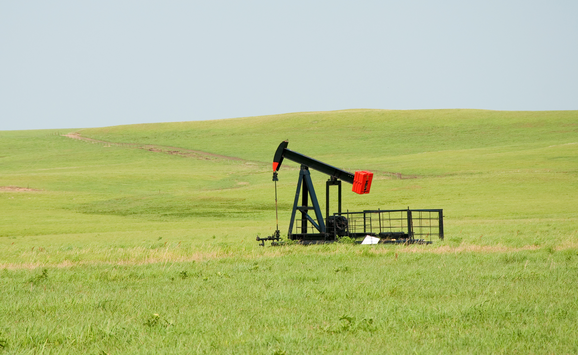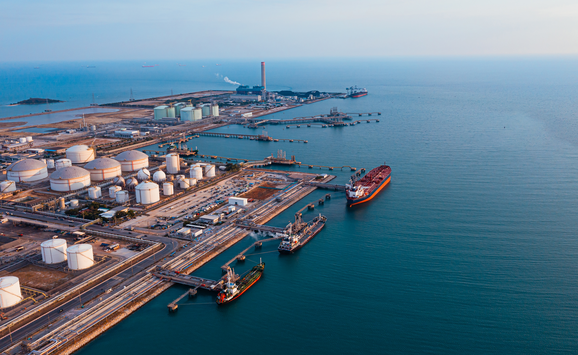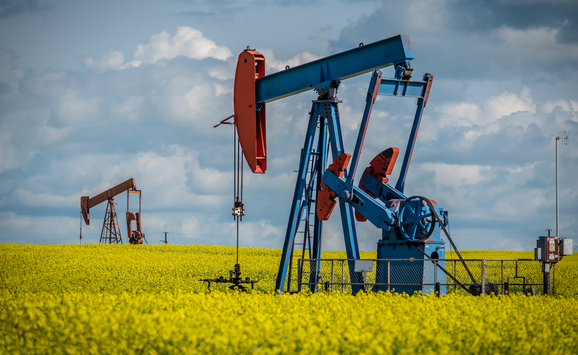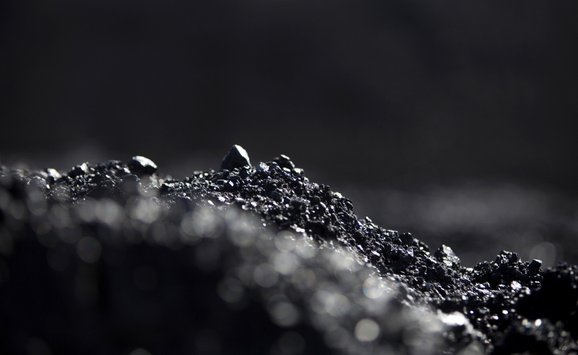Host Daniel Raimi talks with Dr. Todd Moss, Executive Director of the Energy for Growth Hub. Todd has worked for years at the intersection of energy and economic development, with a focus on developing economies in Africa and elsewhere. They cover two major topics: avoiding the so-called "oil curse" in the nation of Guyana, and supporting economic growth in the developing world by improving energy access for businesses and industries.
Top of the Stack
References and recommendations made during the podcast:
- Amity and Prosperity by Eliza Griswold
- Rising by Elizabeth Rush
- IEA Report on Air Conditioners
The Full Transcript
Daniel Raimi: Hello and welcome to Resources Radio, a weekly podcast from Resources for the Future. I'm your host Daniel Raimi. This week we talk with Dr. Todd Moss, director of the Energy for Growth Hub at the Center For Global Development. Todd has worked for years at the intersection of energy and economic development, with a focus on developing economies in Africa and elsewhere. We'll cover two major topics in our discussion. The first, avoiding the so-called oil curse in the nation of Guyana. And second, supporting economic growth in the developing world by improving energy access for businesses and industries. Stay with us.
Todd Moss from the Energy for Growth Hub, thank you so much for joining us today on Resources Radio.
Todd Moss: Great to be with you.
Daniel Raimi: So Todd, we're going to talk about a couple of things today. We're going to talk about a recent article you wrote on Guyana and the oil curse or the natural resource curse. And we're also going to talk about your work on energy access in the developing world.
But first, can you give us a sense of how you got into the field of energy in the first place?
Todd Moss: Yeah, I think I came at it in a different way than most people, through a total accident of history that started with Nigeria's debt negotiation with the Paris Club.
I found myself as the west Africa deputy in the State Department for Secretary Condoleezza Rice. And I was an economist playing as a diplomat. And something that really struck me is that in our discussions with a lot of our African allies, what they really wanted from us was investment in infrastructure, particularly in the power sector.
We were asking them for help on counter-terrorism and promote democracy and human rights, all of these things we want from our allies. And they wanted us to try to encourage General Electric and other American companies to invest in their country.
So when I left the State Department and went back to the think tank The Center For Global Development, I started an energy program there that was focused largely on ways that the US could encourage investment in the African power sector.
Daniel Raimi: That makes sense. And of course that work has continued in government over the years with the Power Africa program and other initiatives.
Todd Moss: That's right. You've got Power Africa, you've also got an expansion of what's currently OPEC or the Overseas Private Investment Corporation. That's actually going to turn into a much bigger and more flexible new agency this October called the US Development Finance Corporation.
That's going to be the principle US government tool for investing in infrastructure overseas. So we are actually seeing a lot of movement on the government side.
Daniel Raimi: That's really interesting. So I'll have to have you back and talk about that specifically at some point in the future.
I apologize, I have a little bit of a cold so that's why I sound a little scratchy over here. So sorry to you and sorry to our listeners. But we'll get through together.
So let's talk about our first subject:Guyana and the idea of the oil curse. This idea of an oil curse or natural resource curse, it's sometimes called—in really broad terms it describes the theory that countries with large natural resource endowments, particularly fossil fuel endowments, are sometimes subject to problems associated with the governance of that resource and governance more broadly.
There's a rich academic literature on this topic. There's some debate as to the source of the resource curse itself and whether the resource is the source of the curse, or that there are other factors at play. We're not going to dive into that academic discussion right now.
We're going to talk about applying it to the case of Guyana. There's been major discoveries of oil offshore Guyana in recent years, and you wrote an article or maybe it was a blog post about this called Guyana's Oil Boom: Two Steps Down, Four to Go. Can you just give us a little bit of background on the discovery of oil in Guyana and also tell me if I'm pronouncing the country's name correctly? And give us a little sense of why this discovery raises concerns about an oil curse in the first place.
Todd Moss: Sure. So you're right Daniel, that there is this pattern that we've seen, not everywhere, but in lots of places where countries that strike it rich with a major discover, if it's oil or mining, tend to also be associated with a bunch of economic and political bads. Things like authoritarianism. Things like very narrow exports, high poverty, high corruption.
It's not unlike the phenomenon that we see with lottery winners where—once in a while, maybe twice a year I'll play the lottery, and I'm pretty confident if I won a hundred million dollars I could spend it well—but actually the statistics are against me. You know, if I'm going to behave like the average lottery winner, my cousins are all going to come out for my money, I'm going to start behaving badly, and it's probably got a pretty high chance of ruining my life.
That same phenomenon actually applies to lots of countries. When they hit the oil or mining lottery, all kinds of bad behavior happens. Countries start moving in some negative directions.
Now Guyana is a tiny country on the north coast of South America. It's less than a million people. But they've had several very, very large offshore oil discoveries. They're about to be hit in the next couple of years with a literal wall of cash. So they're very vulnerable to some of these potential negative dynamics.
You're right in your introduction that it's not exactly clear what are the channels for the resource curse and where does it apply, where does it not.
But one thing that I've found through my work, including a book that we published on this and a lot of work looking at the cases of Iraq and the US state of Alaska, is that one thing that strings all of this together is when you have a very concentrated source of income for the government that it hasn't done anything to achieve, they haven't built up a industrial base. They just had the luck of geology, and then some foreign company comes into the country, gets the resource out, and starts sending checks, that the normal relationship, what social scientists call the social contract between the government and the state starts to break down.
And so people, the population doesn't think that those resources are theirs. So they don't really know what's going on. They don't really have an incentive to care. And the government, they don't have an incentive to care what the people think because they're getting their money. They're not taxing their population. They're getting their resources from a foreign oil company.
And so I think that the most promising avenues here are things that help to try to foster that social contract to make that linkage between what the population does and thinks and what the government does and thinks.
Daniel Raimi: Right. And so can you give us a little bit more detail on what some of those steps might be to sort of develop or reinforce that social contract in the case of Guyana?
So as your title alludes, there are two steps that the government in Guyana has taken, and four that you see as remaining, or four steps to go.
So can you tell us a little bit about what those steps are and why each of them are important?
Todd Moss: Sure. Sure. So you know, one of the things from the literature on resource curse is that people often talk about institutions, which is a very vague abstract notion. They say you know if countries had strong institutions, they could really manage this money well and use it for their benefits. But if they have weak institutions they can't.
Which may or may not be analytically correct, but it's akin to this problem of insomnia. You have a patient who has insomnia and you analyze their problem. And what you've figured out is what they need to do is get more sleep. It's true but it's not actually useful in any way.
So nobody can tell you how to build strong institutions in the state. So there have been a number of steps, in some cases leaps forward, in thinking about how to rebuild that social contract. And that's in trying to create the supply of information and transparency around how resources are being used, and then to raise the public demand for using that information to demand good governance.
There's a little bit of a value chain here where Guyana has made those first two steps. They've provided some of that supply of information, some of that transparency. So what they've done is they have been publishing most of the contracts that they're signing with the foreign oil companies. And the biggest is Exxon Mobil.
And the second thing they've done is they've started taking steps to join an initiative called EITI or the Extractive Industries Transparency Initiative, which is a kind of international group that is a sort of set standards for how a government would release information about what revenues they're getting from oil or mining.
These are two very good steps that the government's taking, which will increase the ability of the population in Guyana and international observers to know okay, what money is coming into the country from the oil.
So they've done very well on how they're going to try to receive the money.
The four steps that we point to as where they still have a ways to go is you still have to manage that money when you get it. You have to decide how to spend it. And then you have to spend it.
And the other steps that we talk about, one is setting up a sovereign wealth fund. This has been a mechanism where you ring fence some of the revenues through a set of rules to say that we're not just going to put all this revenue into the budget and spend it. Some of that revenue will go into a special fund with a governance structure to be saved for the future.
Daniel Raimi: Right. And the famous examples of that, internationally, would be Norway and Saudi Arabia. And in the US we'd think about Alaska as you mentioned earlier.
Todd Moss: Exactly. Lots of countries use sovereign wealth funds.
Now on their own, they don't do all that much. But it is a governance structure that helps you make decisions, and particularly the rules around when the money comes in, how much do you spend today, how much do you spend tomorrow?
The other steps that we mentioned in the blog post are, one is around biometric I.D. The new technology in biometric I.D., especially when you match it with mobile money, all of the sudden enables you to know who your population is and to be able to deliver services in a new way.
And India is doing this. Over a billion people now have unique I.D.s in India. Guyana, a country of less than a million people, they could do this very quickly and very cheaply. That would open the door to all kinds of other things. For example, if the government wanted to provide free health insurance paid for by oil revenues, they would have biometric I.D. to manage that system.
Now we don't necessarily recommend health insurance, but we do make a recommendation, which is step five, would be that a portion of the oil revenues ... Or you could do like Alaska does. A Portion of the profits from the sovereign wealth fund would be paid directly to citizens in a regular dividend.
So in Alaska every state resident, they get a share of half of the five year average revenues off the sovereign wealth fund. It's typically around a thousand dollars a year.
In Guyana there's lots of different ways you could do this. You could set up the rules. But the idea would be that every citizen of Guyana would get a quarterly or semi-annual payment of some kind.
Of course this would be an immediate benefit where people would see some cash in their pockets. But the real benefit of this is, going back to the discussion on the social contract and the oil curse, is that it would put a very direct stake, every Guyanese citizen would be a direct shareholder of the oil. And the incentive for them to know how my government manages our shared resources is very high. Because that would affect their dividend.
And actually if you look at the state of Alaska, Alaska is an anomaly in so many ways. But one thing that is really striking about Alaska is that Alaskan citizens have an incredibly high degree of public discussion around fiscal and tax issues beyond anything that you would see in the continental 48. And a big part of that is because the dividend discussion really focuses the mind.
And so there is a pretty strong case for that even a small dividend, which could reduce poverty in a place like Guyana, but hopefully would induce a positive governance incentive, could play a big role.
Daniel Raimi: Right. Great. That makes sense. And correct me if I'm wrong, but that was the name of the book you mentioned earlier, right? It was called Oil to Cash.
Todd Moss: That's right. The book Oil to Cash, which is fighting the resource curse through cash transfers is a book that I did with two colleagues, Caroline Lambert and Stephanie Majerowicz a couple of years ago. And we looked across lots of examples around the world where we're seeing steps in that direction and lots of opportunities to try this out.
Daniel Raimi: Great. What are some of the potential barriers for Guyana in implementing some of these steps?
So the logistical barriers are actually quite small. And setting up this mechanism can be done pretty easily. The real barrier is that it's a political economy question. You need ... The government is about to be the recipient of a large windfall. And the government would have to decide that it was in its interests to share some of that cash directly with citizens rather than spending it all themselves.
Todd Moss: And that can be a tough hurdle for a lot of governments that maybe don't have confidence in their citizenry or they think that the government will spend the resources better than citizens will.
Daniel Raimi: Yeah. So another question that this makes me think of is the US context, and listeners of this podcast will know well. We've talked about the boom in US oil and gas production quite a bit.
Are there lessons from Guyana or from this set of steps that you've just described that are applicable in the US context in a place like the Permian Basin or the Marcellus or the Bakken regions. Would you sort of recommend the same sets of fiscal approaches as you would in a place like Guyana? Or are the contexts different enough to merit different approaches?
Todd Moss: Well what's unique about the US relative to, I think the entire rest of the world is that the subsoil rights are privately held in the US rather than publicly held.
And so the revenues from the Permian Basin are not all sent to Washington which then distributes the largess that way. So I think the system is fundamentally different.
Where I do think there are some cautious lessons to be learned from the rest of the world is that people are people everywhere, and the United States is not immune to the worst instincts of how people behave. We're not immune to corruption and to some of the worst excesses. And that a gold rush can literally bring out the worst in people.
And so we should just assume that Americans are going to behave like everyone else and try to design our public policies accordingly.
Daniel Raimi: Yeah. That has been interesting to watch. You know those three regions that I mentioned. The Bakken, Permian, and Marcellus, the state governments in those places. And this is an area where I've done some research. You know, just take really different approaches to managing those revenues.
And you're right that a large share flows to private individuals and landowners. But for the share that does flow to the state government in particular, we see really different approaches within states and different issues coming up in those different regions.
Todd Moss: Yeah. For sure. For sure.
Daniel Raimi: So let's transition now and move away from the oil curse and move towards an area where you're, I think, focusing most of your time these days, which is an organization that you lead called the Energy for Growth Hub which is focused on promoting reliable and affordable energy for commercial and industrial consumers in regions with limited energy access.
And so this approach is fairly different from a lot of research and efforts that we've seen that are focused on increasing energy access for households.
So can you talk a little bit about the factors that limit energy access for businesses in the places where you work and give us a sense of the theory of change that drives your work on trying to provide energy access for business rather than households?
Todd Moss: Yeah. So you know I started the Energy for Growth Hub. It grew out of a research initiative at the Center For Global Development where we were looking at energy issues in particularly Sub-Saharan Africa, but also south Asia and parts of Latin America.
And it really struck me that when people think about energy, poverty in Africa, they immediately go to residential electricity. And if you look at the share of global energy that is residential electricity, it's about five percent.
But when we measure progress against energy poverty. For example, in the sustainable development goals, SDG number seven is modern energy for all. The metric for success for modern energy for all is household electricity.
So we're actually ignoring 95 percent of the energy that is used in the economy. And even within electricity, only a minority of electricity in an economy is used at home. But it's what we immediately think of. We think of our fridge or we think of our lights, we think of our television.
But most electricity is used in industry and commerce, and it's the energy used outside the home that actually is what drives development and what drives incomes higher.
It's not that household electricity isn't important. It is. But the way that Africa and the low income parts of Asia are going to become more prosperous is from driving higher energy consumption outside the home, not just inside the home.
So that's what we really wanted to do. This is also relevant to Guyana, going back to our earlier conversation. I didn't talk about step number six, which is to cut deals with the oil companies to electrify all the urban centers in the country.
You know oil, especially offshore oil, famously does not lead to a lot of domestic jobs. But the way that Guyana could produce jobs is if they had a lot of cheap energy at home that could then drive employment growth and economic growth onshore.
And so that's really the approach of the Energy for Growth Hub, which is to look at the kinds of technologies and policies that can drive energy systems at scale and that deal with issues like reliability and affordability.
You asked about our theory of change. What we're really trying to do is create a network of researchers who want to have a real world impact. And this came about because I started interacting with just incredible people at places like MIT and Stanford and Berkeley and Chicago and The Colorado School of Mines.
What I realized is that there were a lot of big brains doing a lot of incredible work that was not necessarily reaching decision makers, particularly in Africa. And so the kind of work that the Energy for Growth Hub does is to take and translate some of that work into something that a policymaker working in Kenya or Nigeria could act upon. And then we try to organize engagements to actually get the researchers and the engineers in the room with the decision makers to see if we can drive some change.
Daniel Raimi: That's fascinating and really important, and interesting approach.
Can you give us maybe an example or two of a project that has sort of applied these principles?
Todd Moss: Sure. So I'll give you one here in Washington D.C. where I am and one out in the wider world.
So here in Washington, the Hub, we convened a group of energy and development finance experts to make recommendations to this new agency, the US Development Finance Corporation that I mentioned earlier, for what kinds of things they could do in the energy sector that would be more impactful around the world.
And we have a couple of recommendations now, we're just putting it out this week. But it's really trying to find ways to use US government tools to encourage greater use of technology in the energy sector. And this includes not just hard infrastructure like power plants and power lines, but also some of the soft digital power management systems where bringing US technology could be really helpful.
So that's one example. The other one is in a couple of weeks, several of us will be going to Ghana for an all day workshop with senior leadership in the energy and finance ministry. Ghana is a country in west Africa which has made a lot of progress. They're close to universal access for households in the country. But the cost and reliability of electricity in Ghana is still costing the country about a hundred thousand jobs a year. And if that was in the US, that's more than a million jobs a year. Because our power system wasn't working well.
So what we're going to be doing is I'll have folks from Stanford in California and from Colorado and Washington meeting up with our colleagues in Ghana to see if we can help the country move forward on gas to power and on setting their next round of energy goals. So those are two areas.
Daniel Raimi: Yeah. Great. And Ghana's another country that had a relatively recent discovery of major offshore oil reserves, right?
Todd Moss: That's true. In 2007 they had, for Ghana very big, for the world not so big. But it's had a transformational effect on the country. But they're still, you know, it's more than 10 years later. They're still struggling to convert their own fossil fuels into power. And they're trying an array of solutions. But they're still quite a bit away from where they want to be.
Daniel Raimi: Yeah. Fascinating. Well I personally have a soft spot and longtime interest in Ghana, partly because ... So in my former life I was a musician and I actually played west African high life music with a master drummer from Ghana. And I actually spent a month in Accra studying traditional drumming.
Todd Moss: Oh, fantastic.
Daniel Raimi: If you get the chance to hear some music, make sure to do it while you're there.
Todd Moss: I will. Well Ghana's also very close to my heart. I did my doctoral field work in Ghana and I try to get there at least every year. So Ghana's definitely one of my favorite places.
Daniel Raimi: Yeah. Great. Well thank you so much Todd for covering so much ground with us today. I know we're only scratching the surface of a couple of these topics, but it's definitely piqued my interest and I think it will do the same for our listeners.
So we're going to move now to the last segment of our show, which we call top of the stack. And it's where we share just something fun that we've been reading or watching or listening to that we think our listeners might be interested in.
I'll start us off with a couple of books that came across my screen just recently. So the winner of the Pulitzer Prize for non-fiction this year is a new book called Amity and Prosperity, which is a book by a writer named Eliza Griswold. And it focuses on negative impacts of shale gas development in Washington County Pennsylvania, which is another place where I've actually spent quite a bit of time. I haven't read the book yet, but I've heard a lot of good reviews. And so now it's going to be at the top of my stack along with one other book that was a nominee for the non-fiction Pulitzer Prize, which is a book called Rising by Elizabeth Rush. And that's about the impacts of sea level rise on coastal communities in the US.
So two out of the three noted books for the Pulitzer this year were about environmental issues. So definitely two books I'll be looking into.
So Todd, how about you? What have you been thinking about or reading or enjoying lately?
Todd Moss: Yeah. So not to be too much of an energy nerd, but the thing I was reading last week that I just found really fascinating, and I should preface this by saying I normally stay as far away from big international reports as possible.
But I came across one from the International Energy Agency on the future of coolant that I just found somewhat frightening but endlessly fascinating.
And part of this is because I've become a little bit obsessed with air conditioning. And you know, we always think of lights when we think of energy, but really air conditioning is what has really changed the world as much as lighting I think.
And what the IEA projects is that we're at about 1.5 billion air conditioners in the world, and by 2050 we're going to be at 5.5 billion air conditioners.
Daniel Raimi: Wow.
Todd Moss: And you know, if you look at your seasonal electricity bill, especially if you live in Washington D.C., it absolutely spikes in the summer. And so I think everyone knows that air conditioning is hugely energy intensive.
So this is a major technological and environmental challenge I think. Especially as the Indian middle class grows and Indian temperatures rise and air conditioning goes from being a luxury in India to a necessity. That really got my mind spinning, this IEA report.
Daniel Raimi: Yeah. Absolutely, wow. Those numbers are just amazing. Yeah, thinking about the magnitude of energy impact and the magnitude of health benefits and other benefits that it will provide people is pretty amazing.
Todd Moss: Absolutely. Absolutely.
Daniel Raimi: Yeah. Well so Todd Moss, thank you so much for joining us today and talking to us about your multiple areas of interest and areas of work. And we'll wish you luck and look forward to learning more about them in the future.
Todd Moss: Great. Thank you Daniel. Appreciate it.
Daniel Raimi: Thank you so much for joining us on Resources Radio.
We'd love to hear what you think, so please rate us on iTunes or leave us a review. It helps us spread the word. Also feel free to send us your suggestions for future episodes.
Resources Radio is a podcast from Resources for the Future. RFF is an independent non-profit research institution in Washington D.C. Our mission is to improve environmental, energy, and natural resource decisions through impartial economic research and policy engagement.
Learn more about us at RFF.org.
The views expressed on this podcast are solely those of the participants. They do not necessarily represent the views of Resources for the Future, which does not take institutional positions on public policies.
Resources Radio is produced by Kate Petersen with music by Daniel Raimi.
Join us next week for another episode.









